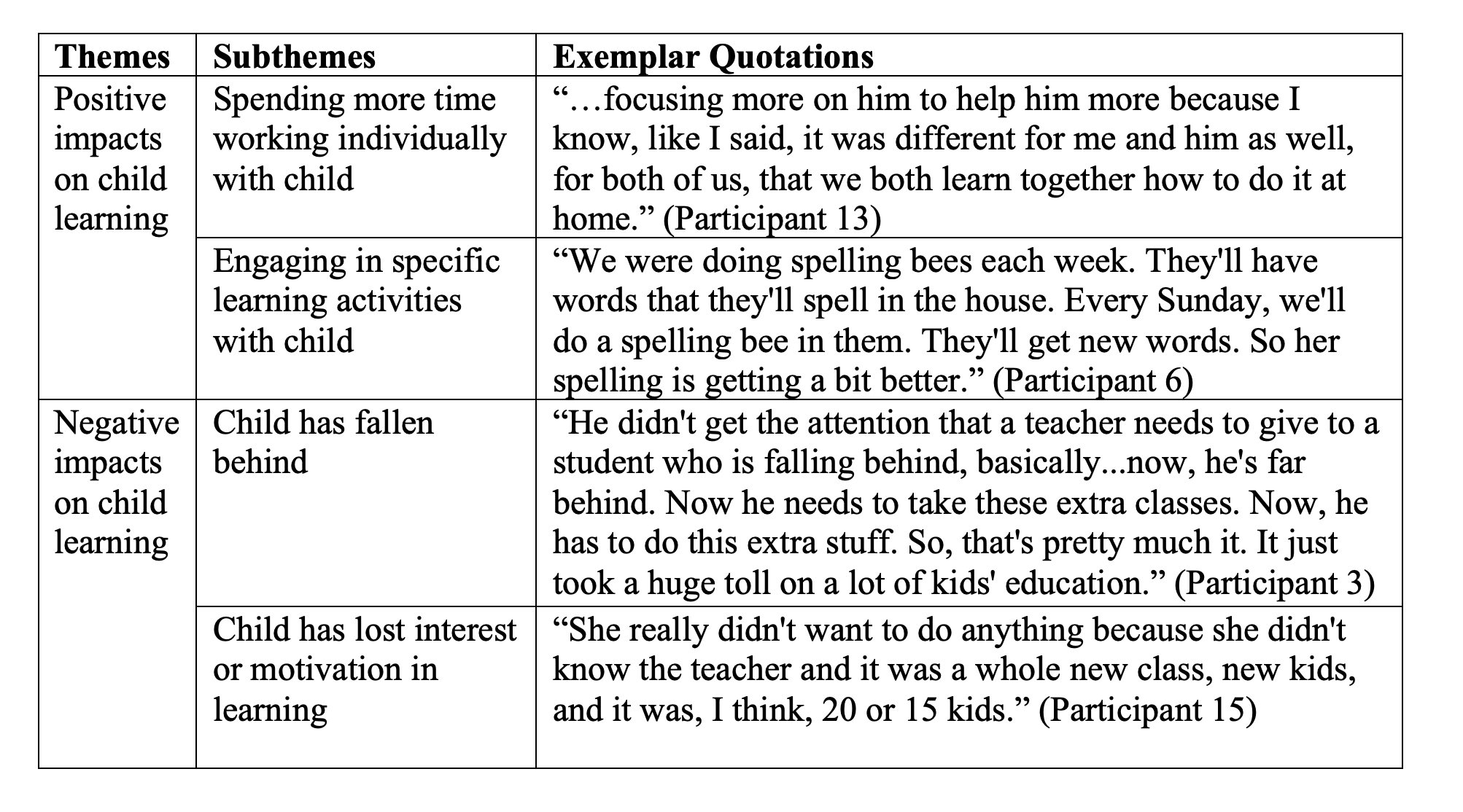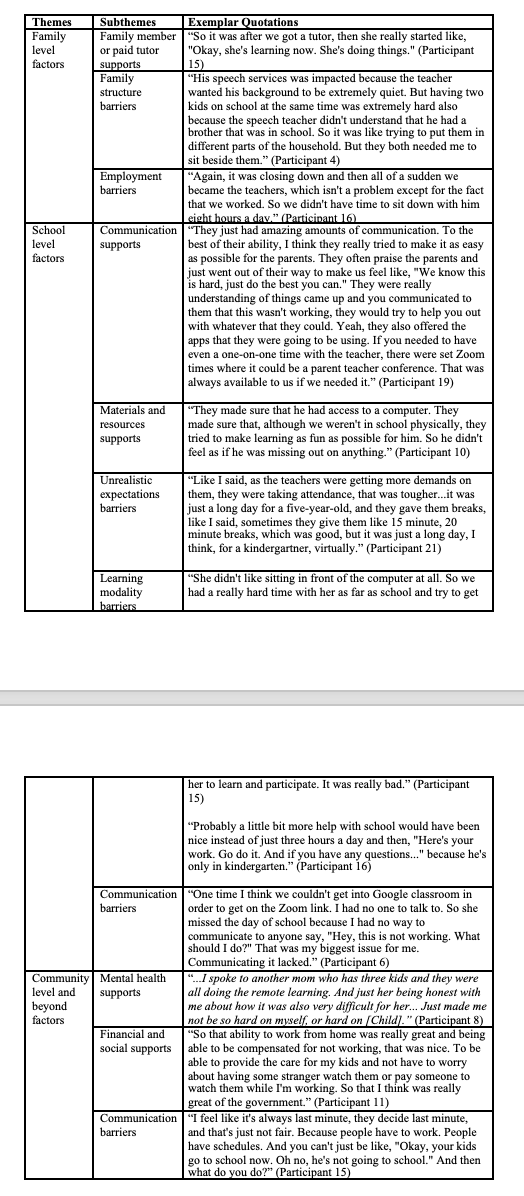Developmental and Behavioral Pediatrics: ADHD/Learning Problems/Schools
Developmental and Behavioral Pediatrics 1
558 - Maternal Perspectives about the Impact of COVID-19 on Kindergarten Learning: A Qualitative Study.
Publication Number: 558.108
.jpg)
Eve R. Colson, MD, MHPE (she/her/hers)
Professor and Associate Dean
University of Washington School of Medicine
Saint Louis, Missouri, United States
Presenting Author(s)
Background: COVID-19 has profoundly impacted learning of kindergarten-age children, potentially exacerbating gaps for children in lower income households.
Objective:
To understand mothers’ perspectives about the: 1) impacts of the COVID-19 pandemic on kindergartners’ learning and 2) factors that mitigated or exacerbated these impacts.
Design/Methods:
We conducted in-depth, semi-structured interviews with mothers of kindergarten-age children during the 2020-21 school year. Participants were mothers from a larger study who were in the lowest tercile for household income. Interviews focused on positive and negative impacts of the pandemic on learning, and factors that mitigated or exacerbated impacts. We systematically and iteratively analyzed the data allowing concepts and themes to emerge. Multiple researchers from varied backgrounds reviewed each transcript and any disagreements were discussed, ensuring trustworthiness in the analytic process. Interviews continued until thematic saturation was reached.
Results:
Of the 22 participants, 41% identified as non-Hispanic Black, 36% as Hispanic, and 23% as non-Hispanic White. All participants had household incomes less than 250% of the 2021 federal poverty level for household size. Most children experienced fully remote learning (50%) or hybrid (32%).
Impacts on learning
A few mothers described positive impacts on learning such as spending more time with and engaging in learning activities with their child. Most mothers described negative impacts on learning such as the child falling behind and/or losing interest in learning.
Factors that mitigated or exacerbated learning impacts
Participants described family, school, and community-level factors that mitigated and/or exacerbated learning impacts. Family level factors included having resources available to tutor their child, having other children at home, and employment issues. School level factors included communication, school resources available, setting realistic expectations, and having access to technology. Community level factors included mental health supports, as well as financial and social supports.
Conclusion(s):
Understanding the family perspective on the impact of COVID-19 and facilitators and barriers to their children’s learning can help guide planning during crises that lead to school disruptions. Pediatricians caring for children who face learning challenges exacerbated by the pandemic may be called upon to assist and to advocate for patients and their families.


